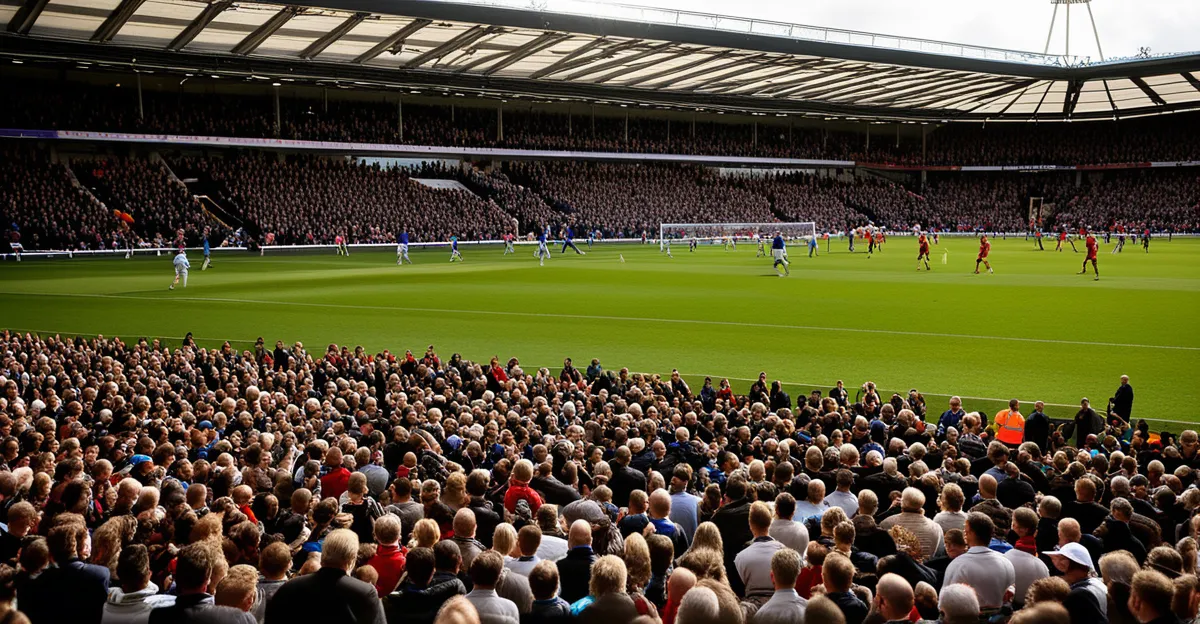Immediate Economic Impact of Major Sporting Events in the UK
Major sporting events in the UK consistently deliver a local economic boost through increased visitor spending and heightened local business revenue. When large crowds arrive, restaurants, retail shops, and transportation services experience a surge in demand, significantly elevating short-term income for these sectors. The sporting event impact goes beyond just consumption; employment opportunities swell as temporary staff are needed in hospitality, security, and event management, providing a crucial source of income for many communities.
Recent UK major sports events illustrate these effects vividly. For example, during global fixtures, visitor numbers spike sharply, bringing millions in additional revenue. Businesses near venues often report record sales, sometimes doubling their normal turnover during event periods. This immediate influx can stimulate economic activity not only in city centres but also in surrounding areas, creating a ripple of financial benefits. However, the scale of these gains depends heavily on effective event organization and local business readiness to capitalise on the opportunities presented.
Also to read : How Do UK Sports Inspire Community Engagement?
Influence on Tourism and Hospitality Sectors
The tourism boost generated by UK major sports events is a critical driver of the hospitality sector’s success during these occasions. An influx of both international and domestic visitors floods cities hosting major sporting fixtures. Hotels typically report near full occupancy, while restaurants, bars, and transportation services experience surging demand. This spike in visitors translates directly into increased revenues and job creation within the hospitality sector, reinforcing the event-driven tourism UK economy.
How significant is the tourism boost during these events? Data shows occupancy rates can rise by over 30% compared to normal periods, with hospitality businesses often extending hours to meet demand. In addition to short-term effects, hosting major events enhances destination appeal, encouraging repeat visits well beyond the event dates. This uplift shapes long-term tourism patterns and bolsters local economies.
Topic to read : How do UK universities contribute to sports excellence?
Moreover, the growing recognition of UK cities as vibrant sports hubs improves their international reputation. As a result, event-driven tourism UK benefits from a cycle of continuous growth, supporting sustained development in hospitality and related services.
Infrastructure Development and Urban Regeneration
Major UK sporting events often trigger substantial infrastructure investment focused on upgrading sports facilities UK-wide and improving transport systems. The London 2012 Olympics exemplify this, where extensive urban regeneration transformed East London’s landscape, boosting accessibility and community amenities beyond event timelines. Investments typically include modernising stadiums, enhancing public transport links, and creating new recreational spaces that serve residents long term.
This urban regeneration is more than physical renewal; it sparks economic revitalisation in host cities. Improved infrastructure attracts further private investment and can stimulate business growth, adding layers to the local economy. While costs can be high, strategic planning aims to ensure that projects act as catalysts for sustainable community development.
Sports facilities UK gains from these events aren’t limited to elite venues; community sports centres often benefit, increasing accessibility for local populations. When combined with transport improvements, the overall sporting event impact extends well into everyday life, promoting healthier lifestyles and heightened civic pride alongside economic advantages.
Effects on Local Businesses and Supply Chains
Major sporting events in the UK foster significant local business growth by creating heightened demand for goods and services. Local suppliers and service providers benefit from increased orders, often experiencing their busiest periods during these events. This surge can expand business networks, enabling companies to connect with new clients and partners, which supports longer-term commercial success.
The sports event economy prompts retailers, caterers, and logistics firms to scale operations rapidly. However, these benefits come with supply chain challenges. Demand spikes may cause shortages of essential products or labor, increasing costs temporarily. Price surges can strain smaller local businesses that have less pricing flexibility, requiring strategic planning to balance opportunity with risk.
Effective coordination between event organisers and local suppliers is crucial. Businesses that prepare by increasing inventory or collaborating with partners can capitalise on the sporting event impact more efficiently. Thus, while local business growth is a standout feature, understanding and managing supply chain effects is essential to sustain profits beyond the immediate economic boost.
Long-term Economic Legacy of UK Sporting Events
Major UK sports events often leave a long-term economic legacy that extends beyond immediate gains. Post-event impact typically includes sustained increases in visitor numbers, which boost local businesses over time. For instance, enhanced global recognition of host cities drives repeat tourism, helping maintain the local economic boost well after the event concludes.
Shifts in employment rates are notable; jobs created temporarily during events can translate into new career pathways as industries evolve to support ongoing tourism and sports activities. This fosters sustainable growth UK wide, with communities benefiting from improved skills and economic resilience.
Evaluating net outcomes is complex but essential. While some costs and disruptions occur, many host areas report positive long-term effects, including diversified economies and enhanced infrastructure use. Ensuring the sporting event impact leads to durable benefits requires proactive planning focused on integrating event-driven opportunities with community needs.
This legacy supports not only economic vitality but also social cohesion, making the overall effects of UK major sports events crucial for regional development.





